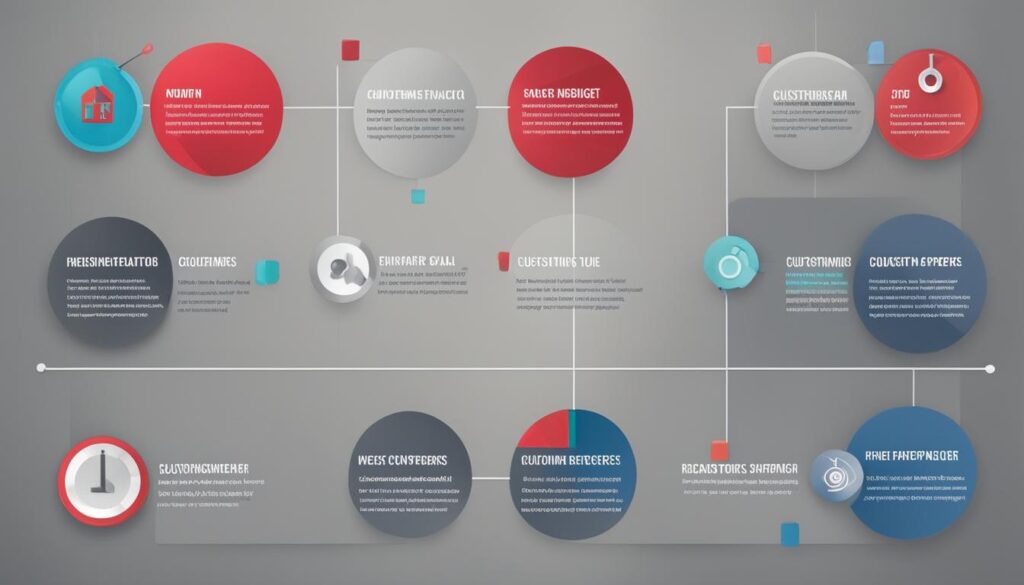Starting a Business? Understand What is Marketing
If you’re starting a business, understanding the fundamentals of marketing is key to your success. Marketing is the process of promoting and selling products or services to your target audience, and it’s essential to reach potential customers and drive business growth. In this section, we will discuss everything you need to know about marketing in business and provide actionable tips on how to start your marketing journey effectively. Key Takeaways Marketing is essential for business growth and reaching your target audience. Having a strong marketing strategy is crucial to promote products and services effectively. Conducting market analysis and research can help identify your target audience and define marketing goals. Starting a marketing business requires understanding your niche, building a strong brand identity, and creating an effective digital marketing strategy. Always analyze market trends, adapt to changes, and refine your marketing approach to stay competitive. What is Marketing in Business? Marketing in business involves several components, including the development of marketing strategies, tactics, and techniques to promote products and services effectively. Identifying the right marketing plan is critical in attracting and retaining customers while staying profitable. To achieve set goals, conducting market analysis and research is essential. Research allows you to identify target audiences and understand competitors, providing insights needed to define the best approach to meet your goals. Data gathered during market analysis highlights the strengths and weaknesses of your product or service and helps you make informed marketing decisions. When creating your marketing plan, start by identifying strategies that align with your goals and budget. These may include email marketing, content marketing, influencer marketing, and social media marketing. Be sure to develop effective messaging techniques aligned with your goals and budget. Once you’ve identified your marketing strategies and messaging, it’s time to create a comprehensive marketing plan. Your plan should outline your marketing goals, message, strategies, tactics, and timelines and set realistic milestones to track progress. As you implement your marketing plan, continuously conduct market analysis and research to assess performance and adjust your approach. Stay up-to-date with evolving consumer preferences, emerging technologies, and changing trends to remain competitive in your market. How to Start a Marketing Business? If you’re ready to start your own marketing business, there are a few important steps to take to ensure your success. Define Your Niche Finding your niche is critical to the success of your marketing business. Whether you’re interested in B2B marketing or focused on a specific industry, it’s important to establish a niche that sets your business apart from competitors. A well-defined niche also helps you better understand your target audience, their pain points, and how you can provide value to them. Build a Strong Brand Identity Your brand identity sets the tone for your business and helps you stand out in a crowded marketplace. Create a strong brand with a clear vision, unique messaging, and a consistent visual identity. A memorable brand helps build trust and credibility with potential clients, making them more likely to choose your services over others. Create an Effective Digital Marketing Strategy Digital marketing is essential in today’s business world. Establishing a strong online presence through social media, email marketing, and a well-designed website can help drive traffic and bring in new business. Understand the latest digital marketing trends and techniques, and create a customized strategy that reflects your brand and resonates with your target audience. Understand Your Target Market Identifying your target market is key to creating a marketing strategy that brings results. Conduct market research to gain insights into your target audience’s needs, behaviors, and preferences. Use this data to create content and tactics that will effectively reach and engage them. Set Realistic Goals Before launching your marketing business, set realistic goals for growth and success. Identify what you hope to achieve in the short and long term, and create a plan to turn these goals into reality. By setting measurable goals, you’ll have a roadmap for success and can track your progress along the way. Utilize Various Marketing Channels and Tools There are countless marketing channels and tools available to help you reach your target audience and drive business growth. From SEO and PPC advertising to content marketing and influencer partnerships, explore and test various tactics to see what works best for your business. Continuously analyze and optimize your marketing approach to achieve the best possible results. “Starting a marketing business can be a challenging endeavor. However, by following these practical steps, you’ll be well-equipped to start your journey towards success.” Conclusion In conclusion, starting a business is an exciting and challenging venture. However, understanding the fundamentals of marketing is crucial for achieving business success. By applying the marketing strategies, tactics, and techniques we explored in this article, you can effectively promote your products or services, reach your target audience, and drive business growth. Remember to continuously analyze market trends, adapt to changes, and refine your marketing approach to stay competitive in today’s dynamic business landscape. With hard work, dedication, and a sound marketing plan, you can build a thriving business that serves your customers and fulfills your entrepreneurial dreams. Best of luck on your marketing journey! FAQ What does marketing mean in the business world? Marketing in the business world refers to the activities and strategies that businesses use to promote and sell their products or services. It involves identifying target audiences, understanding customer needs and preferences, creating compelling marketing messages, and utilizing various channels and tactics to reach and engage potential customers. What are some common marketing strategies and tactics? Common marketing strategies and tactics include advertising, public relations, direct marketing, content marketing, social media marketing, email marketing, search engine optimization (SEO), and influencer marketing. These approaches can be used individually or in combination to achieve specific marketing goals and objectives. Why is having a marketing plan important? A marketing plan is important because it acts as a roadmap for your business’s marketing activities. It outlines the goals, target audience, strategies, tactics, and budget for your marketing efforts. Having
Starting a Business? Understand What is Marketing Read More »








